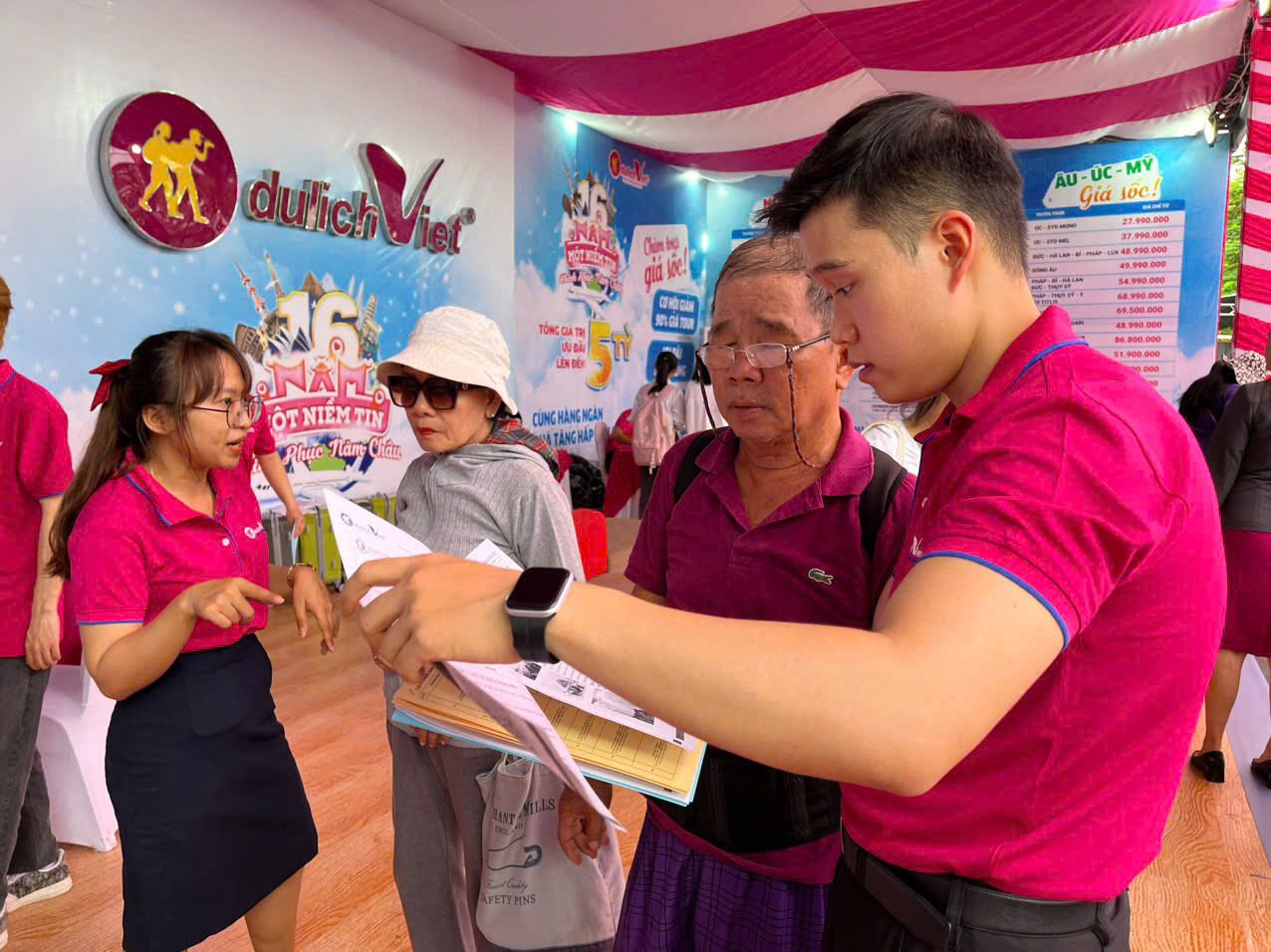
Tour staff advise customers to choose the right tour according to their needs.
Hot growth but short of staff
In more than half of 2025, Ho Chi Minh City recorded more than 9 million international visitors and total tourism revenue reached 436,500 billion VND, affirming its position as a major tourism center of the country. However, when businesses in the restaurant, hotel, travel, transportation industries... enter the peak business season from July to the end of the year, the human resource problem is causing headaches for businesses and is also a bottleneck for the development of the tourism industry.
According to statistics from the National Tourism Administration, the Vietnamese tourism industry is lacking about 30-40% of experienced workers compared to actual demand. In particular, even if people are recruited, retraining is a common situation. In particular, many young workers enter the industry with poor communication skills, limited foreign languages, weak problem-solving skills and lack of practical experience serving international tourists.
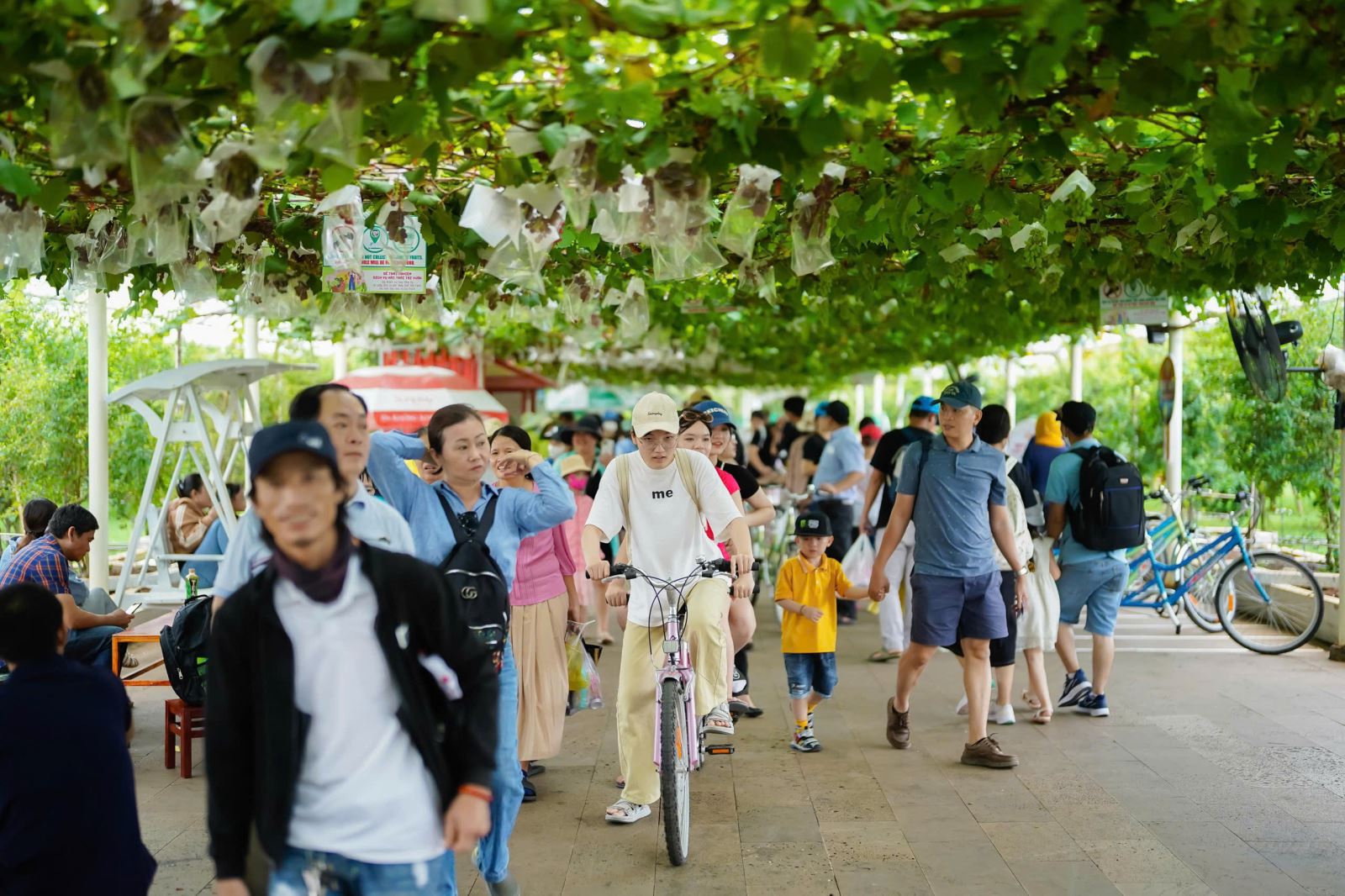
Vietnam's tourism industry is entering peak service season but still lacks human resources.
Ms. Nguyen Thi Khanh, President of Ho Chi Minh City Tourism Association, Vice President of Vietnam Tourism Association said that tourism is an industry that "serves hundreds of families" but customer care and crisis management skills are being underestimated or are not being trained properly. The tourism industry cannot develop or improve a quality service industry without a high-quality workforce. However, while the industry is lacking in general human resources, the shortage of high-quality human resources is even greater.
According to tourism experts, the underlying cause of this situation stems from a training model that is still theoretical, lacking practice and lacking connection with businesses. Associate Professor Dr. Pham Trung Luong, former Deputy Director of the Institute for Tourism Development Research, commented: Vietnam is currently lacking human resources that can work immediately after graduation. Most students who graduate need to be retrained. Therefore, it is time for training to closely follow market realities, instead of relying solely on standard curriculum at training institutions.
In addition, the COVID-19 pandemic has left a large gap in the tourism workforce. Dr Daisy Kanagasapapathy, Associate Dean of Tourism and Hospitality Management at RMIT University Vietnam, said that during the recent difficult period, many experienced professionals left the industry and did not return. Although the tourism industry is recovering strongly, there is still a shortage of highly skilled human resources. If this skills gap is not quickly filled, the quality of services, visitor experience and efforts to raise the position of Vietnam's tourism in the international arena will be significantly affected.
Building a long-term foundation
To solve the problem of human resource shortage in the tourism industry, tourism experts believe that we must first change the training method towards practicality. Schools need to build "business-ordered" programs, increase the amount of practice time and update the content to be close to global trends.
In fact, in Vietnam, there are some large corporations such as Sun Group, Saigontourist , Vinpearl… that have proactively built internal academies, or signed strategic cooperation agreements with schools to train “tailor-made human resources”, meaning that students are taught according to the correct curriculum, in accordance with job requirements and are ready to work immediately after graduation without the need for retraining.

Tourists are flocking to the beaches in large numbers and these areas are also facing a serious shortage of human resources.
Mr. Pham Anh Vu, Deputy Director of Viet Tourism Company, said that there should be policies to support training and encourage local people to participate in the local tourism industry. This will not only help solve the shortage of local human resources but also create a sustainable supply of quality labor for each region. In fact, local human resources will help the locality solve the problem of employment and income for local people, and help the tourism industry develop more sustainably.
Dr. Daisy Kanagasapapathy said that the tourism industry cannot expect a single ministry or sector to solve the human resource problem. Therefore, to solve the human resource problem for the tourism industry, a comprehensive approach is needed, with close and synchronous coordination between the Ministry of Education and Training, the Ministry of Culture, Sports and Tourism, and localities and businesses. Currently, Vietnam is reforming the government apparatus, and it is expected that this reform spirit will continue to spread to the development of human resources in the tourism industry, turning current challenges into sustainable competitive advantages.
Associate Professor Dr. Pham Trung Luong also said that the tourism industry needs to pay attention to restructuring the training program. That means the tourism industry needs to get rid of the old curriculum mindset. Instead, design realistic simulation courses, from hotel operations, tour management to crisis management skills. Businesses must be partners in program design, not just places to receive interns. On the other hand, when Vietnam positions itself as a global destination for tourism and culture, fully equipping the workforce in the industry with knowledge and skills is of utmost importance. In addition to core skills such as communication, foreign languages, and tour operations, experts say the industry needs to expand training in new areas.
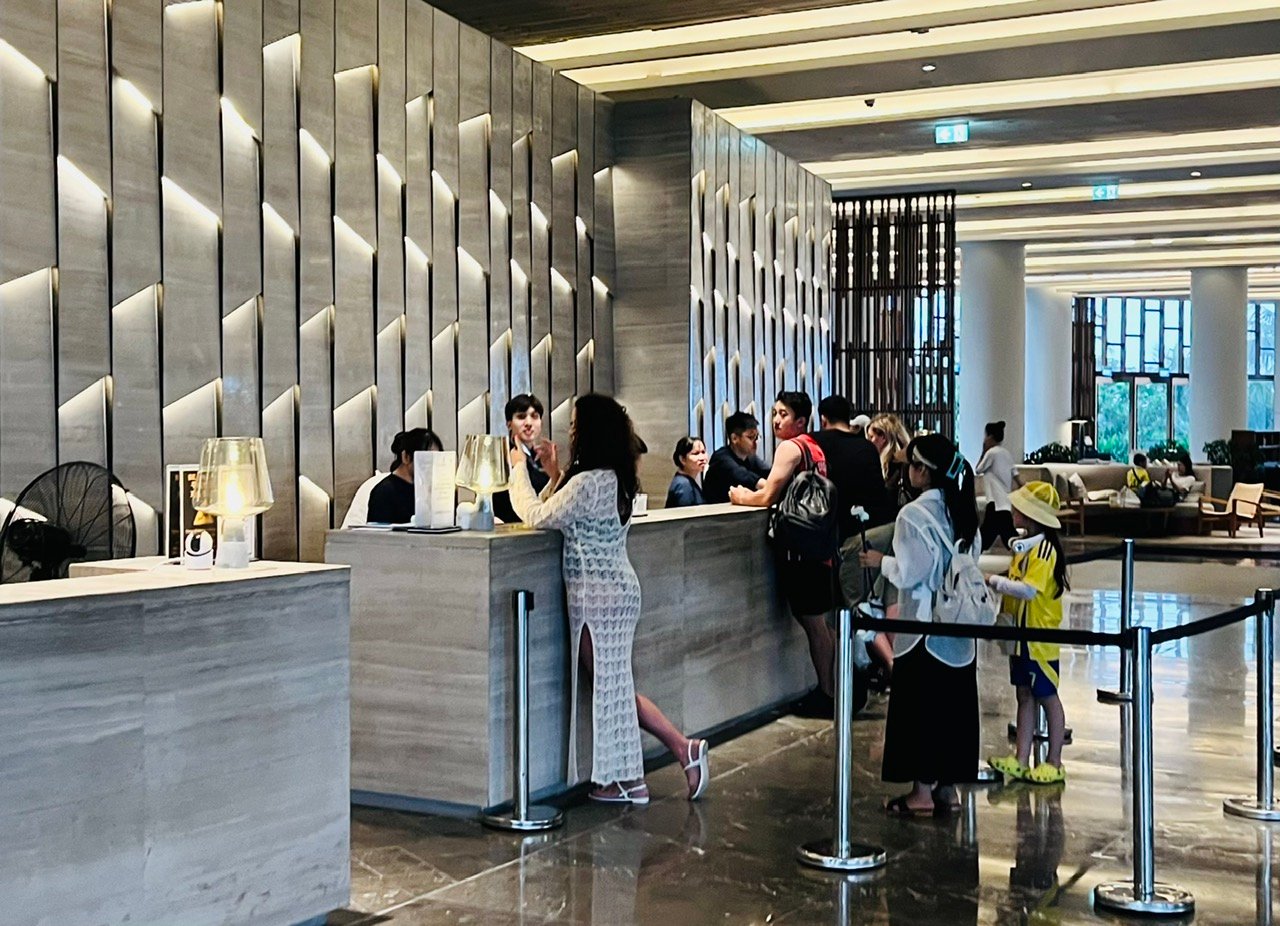
Destinations want to leverage local labor to save costs while helping the tourism industry grow sustainably.
Dr Justin Matthew Pang, Head of Tourism and Hospitality Management at RMIT University Vietnam, said: "We need new majors such as Revenue Management, Asset Management, Health Management, Luxury Goods Management, and even Theme Park Management. These skills must still be supplemented by basic vocational skills, to create comprehensiveness for learners and help learners work immediately after graduation."
However, human resource development does not stop at training. Another important thing is that businesses need to change their approach to new employees, viewing them as long-term investment resources, not just seasonal workers.
“We want companies to value new employees and help them see clear career prospects, starting with good salaries and work-life balance. This is also a key factor in retaining employees, especially the younger generation, who have many choices in the digital age. When human resources are well-trained, properly evaluated and have a long-term vision, Vietnam’s tourism industry will not only attract visitors but also maintain sustainable development momentum,” Dr. Pang added.
Source: https://bvhttdl.gov.vn/nang-chat-nguon-nhan-luc-du-lich-de-hut-khach-den-viet-nam-20250717165715602.htm


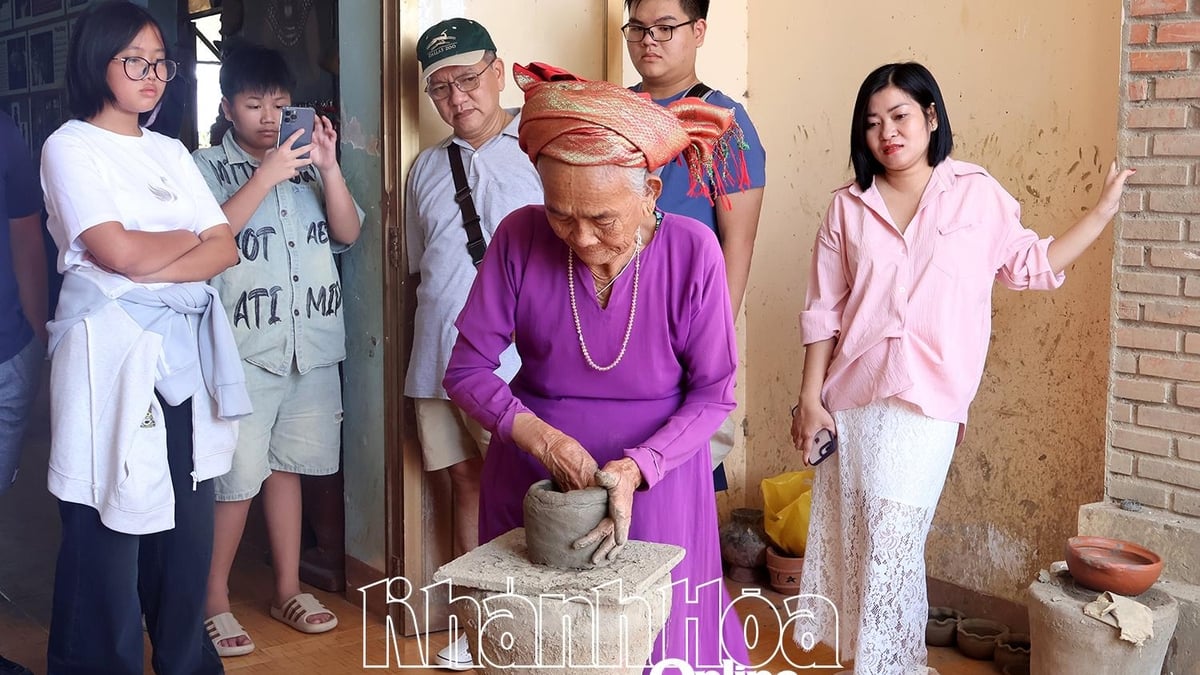
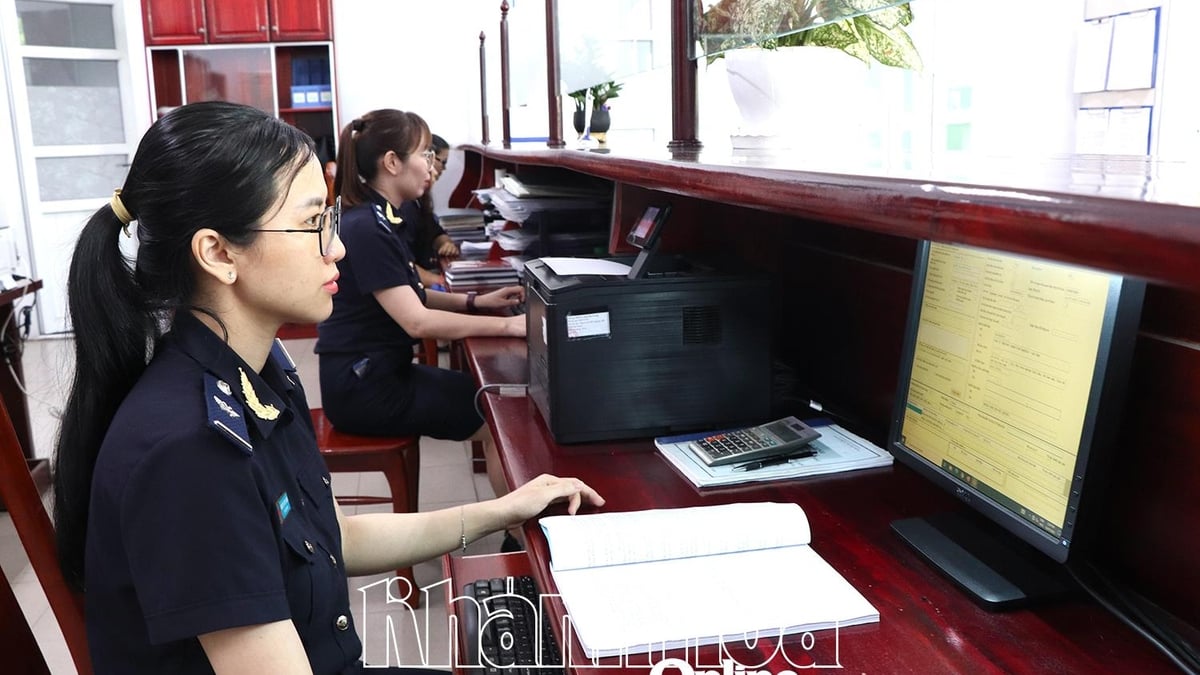



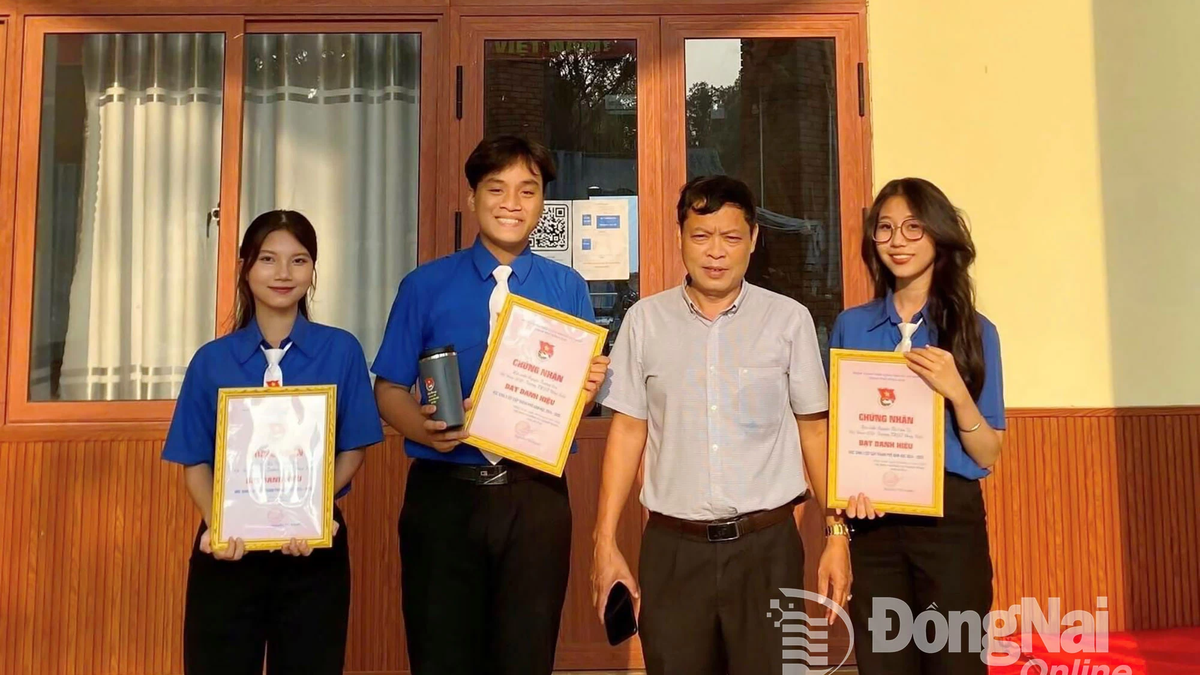


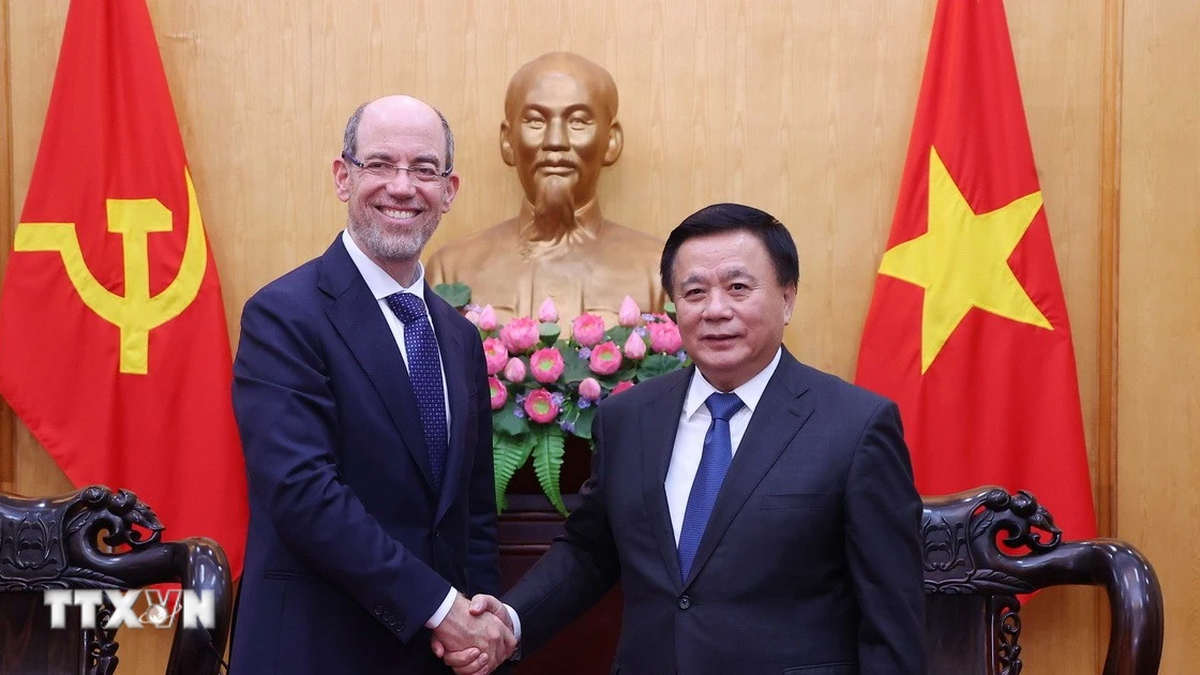
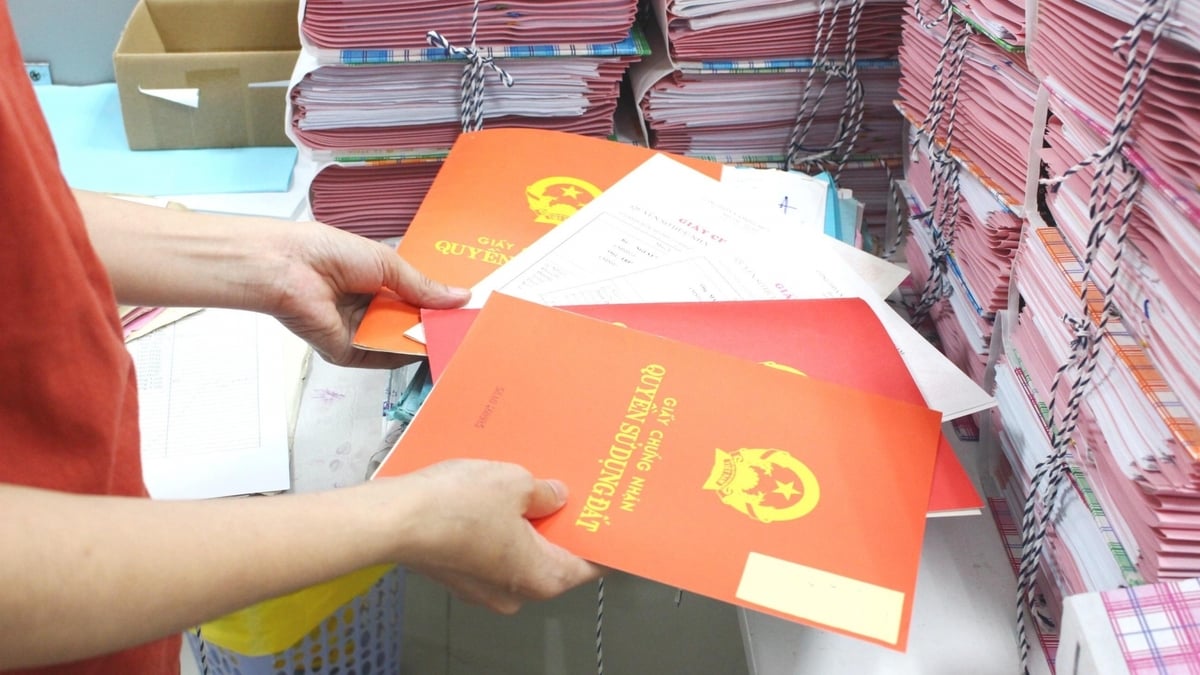
























































































Comment (0)